How To Stay Healthy While Traveling [A Complete Guide]
Once upon a time, I went to a beautiful, tropical resort with a man I was dating. It was the ideal spot for a relaxing, romantic vacation.
We had been looking forward to it for months, imagined how amazing it was gonna be, and counted the days until we left.
When we arrived at the resort, we fell in love with it. It was A-MAZING! Then, a few days into the trip, he came down with a stomach bug.
How to stay healthy while traveling never crossed our minds during all of our planning.
We weren’t sure what caused his illness, but luckily, we were able to get some medicine and he felt better within 24 hours. Had his illness continued, our trip could’ve been ruined.
Has something like this ever happened to you?
HOW TO STAY HEALTHY WHILE TRAVELING
There are many, many factors that can affect your health. Some you can control, others you can’t.
So, how DO you stay healthy while traveling??
There are quite a few simple precautions you can take before your trip and while you’re traveling.
Check ’em out below.
[table id=37 /]
= BEFORE YOUR TRIP =
PACK A FIRST AID KIT
You never know what may happen when you’re traveling. Illness or injury is always a possibility, so being prepared is important.
One simple way is to bring a well-stocked first aid kit as some things may not be available at your destination.
Here are some of the items I recommend including in your first aid kit:
- Band-aids of Various Sizes (for minor cuts and scrapes)
- Tweezers (in case you get a splinter)
- Neosporin (an antibacterial to put on cuts and scrapes)
- Pain Reliever (for head and muscle aches)
- Anti-Diarrheal (in case you eat something that doesn’t agree with you)
- Tums (to soothe a queasy stomach)
- Motion Sickness Meds
If you don’t want to deal with buying the items individually, you can buy a first aid kit that comes with everything you need including the case to hold the contents.
Recommended Resource: Adventure Medical Kits Smart Travel First-Aid Kit
PACK YOUR PRESCRIPTION MEDS
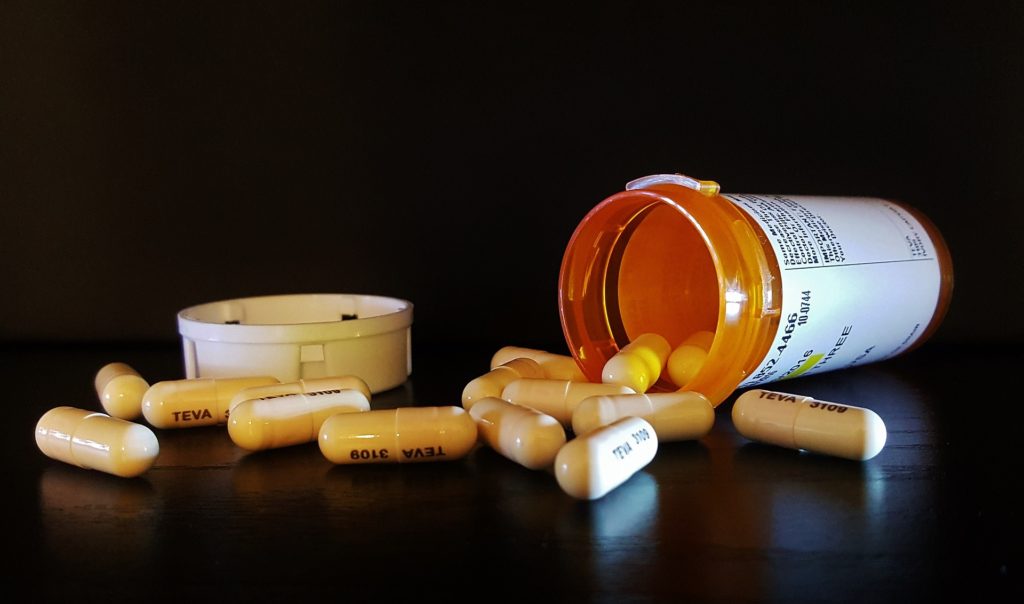
If you are on any prescription medications, missing a day (or more) while you’re traveling could result in major health issues. And depending on where you’re going, your meds may not be available.
Remembering to pack your prescription meds is important, but how you pack them is just as important.
Some basic medications to treat things like headaches and the common cold are illegal in certain countries and could result in confiscation, deportation, jail time, and even the death penalty. (Yikes!)
Do your due diligence before you go: find out the laws of your destination country, pack your meds with supporting documentation, etc.
Recommended Resource: How to Make Sure You Travel With Medication Legally
GATHER YOUR MEDICAL RECORDS

In the event that you get sick while you’re away, you may need to get treated at a clinic or hospital. Depending on the type and seriousness of your illness, the treating physician may prescribe medication to treat your illness.
If you have any medical conditions or prescription drug allergies, you should alert the treating medical professional prior to receiving any treatment.
You can accomplish this a few ways:
- Wear a MedicAlert bracelet or necklace
- Carry a medical alert card in your wallet complete with an emergency contact name and phone number (you can choose either a basic or advanced medical alert card)
- Carry a copy of your medical records (including your blood type) with you or swap medical records with your travel buddy
- Send your medical records to yourself electronically so you can access them securely and remotely (see below⇓)
Recommended Resources: Evernote.com or Box.com
RESEARCH YOUR DESTINATION(S)
Knowledge is power. Before you go on any trip, you should research your destination(s) to get a lay of the land and to find out if there are any health risks you should know about.
For example, in some countries, the water isn’t safe to drink (can you say “Montezuma’s Revenge?!). In other countries, you may be at risk of contracting a disease (like the Zika virus) from an insect bite. And in more remote locales, you may be required to get one or more vaccinations before embarking on your trip.
I’m not trying to alarm you, I’m trying to prepare you.
There’s nothing to be afraid of if you know what you’re dealing with. A little advance research can go a long way toward keeping you healthy.
Recommended Resource: Center for Disease Control and Prevention – Travelers’ Health
PURCHASE TRAVEL INSURANCE
You’ve probably heard of travel insurance but don’t understand what it is or why you need it. Most people are only familiar with trip cancellation insurance, which helps you recoup the money you spent on a trip that gets canceled due to unexpected events such as illness or weather. But chances are you haven’t heard of the travel insurance that covers emergency medical expenses and emergency medical evacuation and repatriation.
Here are two important types of travel insurance to consider, especially if you are traveling internationally:
- Overseas Emergency Medical Expenses Insurance – If you’re injured or get sick while you’re traveling overseas and purchase this type of policy, coverage may include hospitalization; outpatient treatment for medical emergencies; prescribed medicines, X-rays, and laboratory tests; and being brought home, if medically necessary.
- Emergency Medical Evacuation & Repatriation Insurance – Medical transportation and repatriation (return to your home country) are available when necessary to get you back home for treatment. Coverage under this type of policy may include an air ambulance; sea-level aircraft; helicopter; ground ambulance; related medical services and supplies; and an emergency evacuation must be ordered by a physician who certifies that the severity of your accidental injury or sickness warrants your emergency evacuation.
These types of policies can be a little confusing but extremely valuable in the event of an emergency abroad.
Before you purchase any coverage, be sure to contact your own insurance company to find out what, if anything, your policy does – and does not – cover. Then, you can determine what additional coverage you may need.
Whatever you decide, be sure to read the entire policy very carefully. If you are unclear about anything, contact the insurance company for further explanation.
Recommended Resource: World Nomads Travel Insurance
= WHILE TRAVELING =
PROTECT YOURSELF FROM WAYWARD GERMS
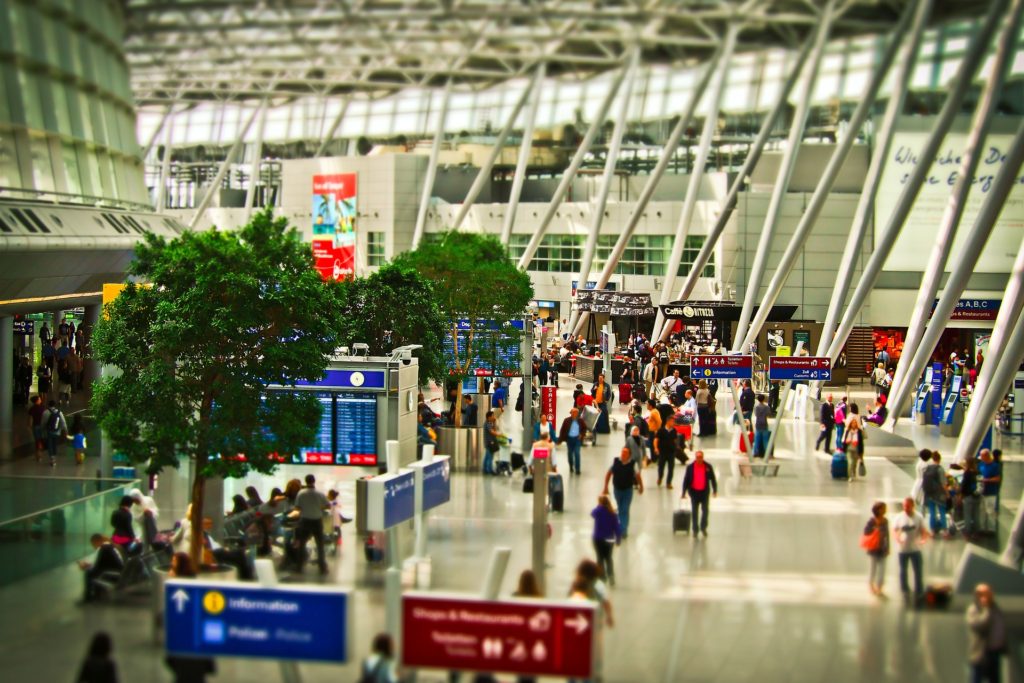
Everywhere you go, you are exposed to germs. It’s just a fact of life you have to accept.
Whether its flu season or another time of year, there are some simple precautions you can take to avoid getting sick. You can:
- Wash your hands frequently (sing “happy birthday” to yourself twice for thorough cleaning)
- Carry and use antibacterial hand sanitizer wipes
- Avoid touching your face and eyes as much as possible.
- Take Airborne or Emergen-C to support your immune system
- Use essential oils (see below⇓). You don’t need a prescription for them so you can take them with you without issue AND they have endless applications.
Recommended Resource: Scent-Sational Travel: Staying Healthy With Essential Oils
PROTECT YOURSELF FROM AIRPLANE GERMS
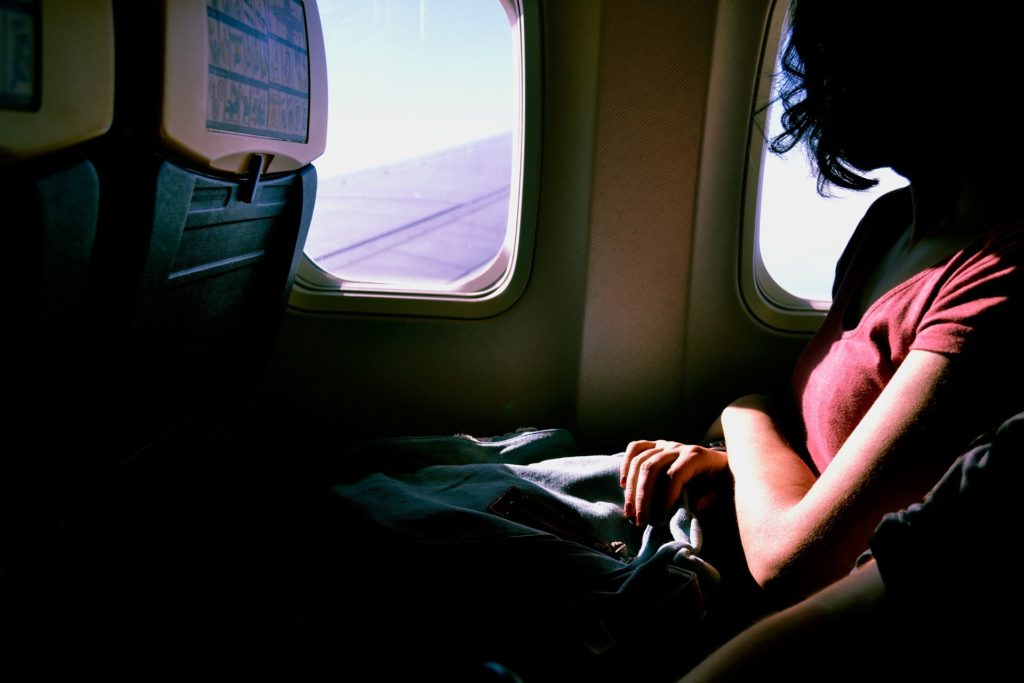
According to the Federal Aviation Administration (FAA), 2,587,000 people fly into and out of U.S. airports on any given day.
With each plane holding several hundred passengers and flying approximately twice a day, often with little (if any) time between flights for cleaning, meaning when you fly, you’re coming into contact with an immeasurable amount of germs.
To avoid getting sick, carry antibacterial hand sanitizer wipes with you and wipe down the following:
- The headrest (the dirtiest place on the plane)
- Tray Table
- Armrests
- Seatbelt Buckles
- Window Sill
- Buttons (for the overhead light, the air, the seat recline, etc.)
- Door & toilet handle in the bathroom
Other ways to stay healthy during air travel:
- Wear shoes, socks or slippers when walking around the plane – NEVER walk barefoot (especially in the bathroom!)
- Stay hydrated by drinking a lot of water.
- Bring your own water bottle. You’ll save money and can fill up at a water fountain in the airport.
- Avoid alcohol – it will contribute to dehydration.
- If you want to drink anyway, be aware that due to differences in altitude, 1 drink in the air = 2 drinks on the ground
- Bring your own blanket or throw, pillow, sleep mask, and headphones or earbuds (this will also save you money on purchasing items available for sale through the airline)
- NEVER put anything into the seat pocket in front of you. Flight attendants have found some disgusting things in them including dirty diapers and dirty underwear (need I say more?!)
- Get some sleep if you can. (Using one or more of the items listed above can definitely help!)
- Keep the little air vent above your seat on throughout the flight. It may seem annoying but when aimed correctly (at your chest), the air will blow airborne germs0 away from you.
- Get up and stretch and/or walk around every hour or so to prevent blood clots. (Wearing compression socks is also a good idea.)
PROTECT YOURSELF FROM GERMS IN
RENTAL CARS & OTHER FORMS OF TRANSPORTATION
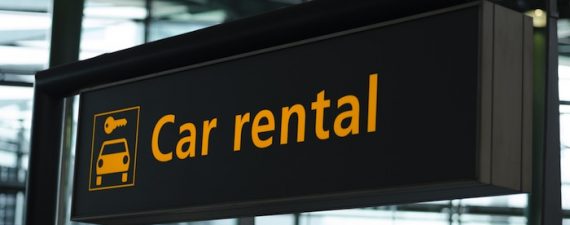
When you get into that rental car, do you know how recently it was cleaned? Rental cars carry fewer people than airplanes (I know – Duh!). Fewer people means fewer germs, right? Not necessarily.
To avoid getting sick, carry antibacterial hand sanitizer wipes with you and wipe down the:
- Steering wheel
- Door handle
- Gear shift
- Buttons for door locks, windows, etc.
- Stereo controls
Precautions for other types of transportation vary.
- In a cab, rideshare service such as Uber, or public transportation, wash your hands or use hand sanitizer/antibacterial wipes after your ride.
PROTECT YOURSELF FROM HOTEL ROOM GERMS

Similar to airplanes, thousands of people stay in any given hotel room each year. Although rooms get cleaned by the housekeeping staff each day, the thoroughness of the cleaning is unknown.
Again, you should wipe down various things with an antibacterial hand sanitizer wipe
Do you know what the dirtiest thing in a hotel room is? The hairdryer (Ewww!) Find out more in the article below.
Recommended Resource: How to Protect Yourself from Hotel Room Germs
GET ENOUGH SLEEP

If you’re like me, you may have trouble sleeping when you’re away. Not getting enough sleep can make you run down and more prone to illness than if you’re well-rested.
One way to get to sleep easier is to turn off your tech at least an hour before going to bed. (I know it’s hard, but it WILL help!)
Another helpful tip: take a bath or shower to help you relax.
Recommended Resource: How to Have a More Peaceful Hotel Stay
MAKE SMART & HEALTHY FOOD CHOICES
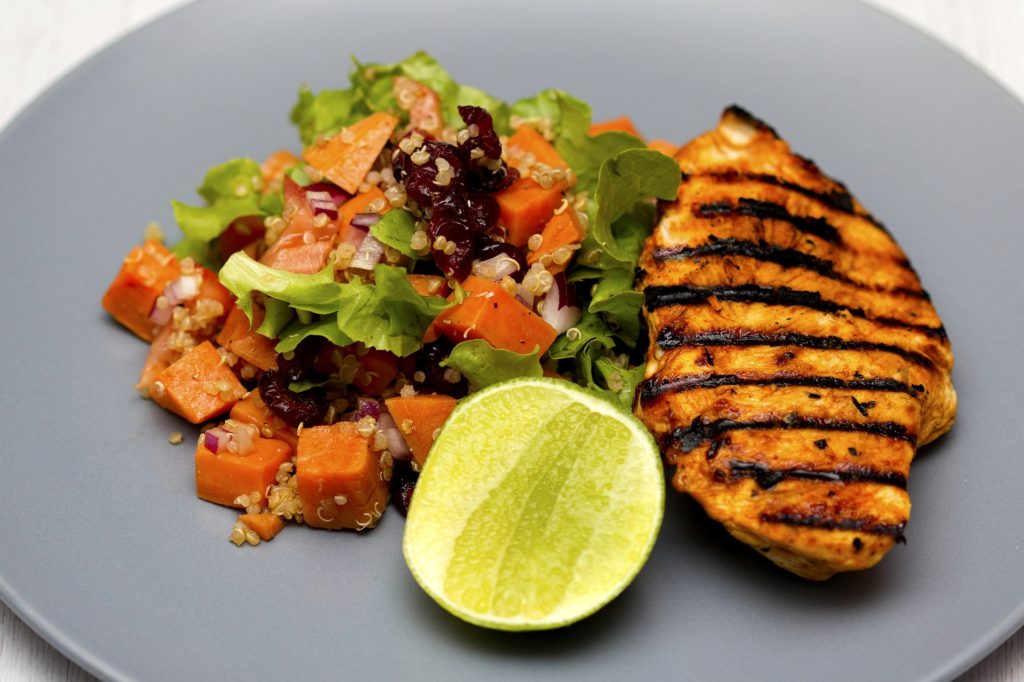
Whether you realize it or not, the type of food you eat can affect how you feel. For example, heavy, fried foods can make you feel sluggish; lighter foods can make you feel healthy and energetic.
Where you get your food can also affect how you feel and your likelihood of getting sick. If you’re in a foreign country, cooked food is typically safer than raw food just as bottled water is safer than tap water.
When it comes to your diet, err on the side of caution.
Recommended Resource: Can I Eat This? app (available on iTunes & Google Play)
MAINTAIN YOUR WORKOUT ROUTINE

If working out is an integral part of your daily life, you won’t want to neglect your regular exercise program while you’re traveling.
Continuing your exercise routine will help you maintain the good health you’ve worked so hard to achieve.
Recommended Resource: 9 Ways to Stay Fit When Traveling
[table id=37 /]
Heads Up: This post contains affiliate links. If you buy something through one of those links, you won’t pay a penny
more, but I’ll get a commission that helps me run this blog. Please see my AFFILIATE DISCLOSURE for more information. Thanks!



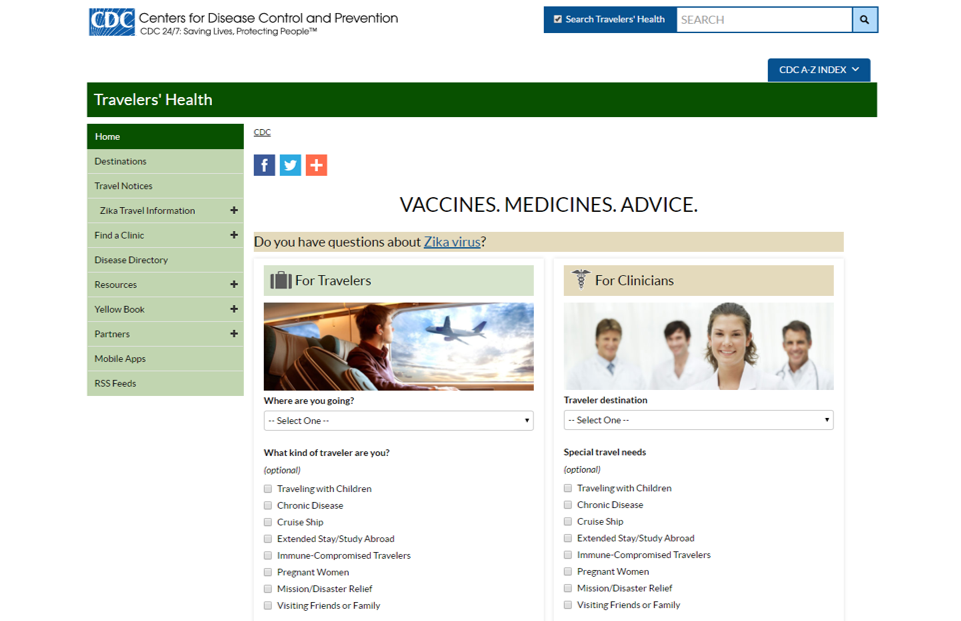
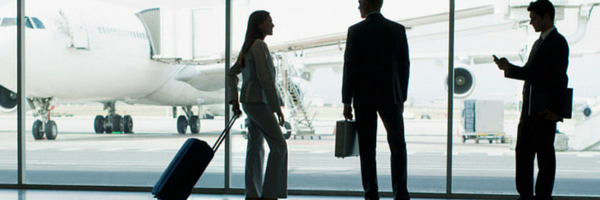




Thanks, Amy!
I have one extra tidbit for people suffering from sleep apnea.
BRING YOUR BIPAP OR CPAP MACHINE!!!
The airlines allow you to bring your machine into the plane as an extra carry-on. You do not have to check this important medical device and it doesn’t count against you as a carry-on.
Trust me… it’s worth it!
Good to know and great advice! Thanks for sharing that with me and other budget travelers.
This was really helpful! I’ll purchase a first aid kit right away. Never thought of it.
Hi, Kim. I have a first aid kit that I keep in my car for road trips and a separate one for air travel. You never know what you’ll need and help isn’t always nearby.